A Christian state is a country that recognizes a form of Christianity as its official religion and often has a state church (also called an established church), which is a Christian denomination that supports the government and is supported by the government. Historically, the nations of Armenia, Aksum, Georgia, as well as the Roman Empire and Byzantine Empire declared themselves as Christian states. In the Middle Ages, the idea to establish a Pan-Christian state by uniting the countries within Christendom, became popular, along with the goal to recover territory in which Christianity historically flourished, such as the Middle East and North Africa. Today, several nations officially identify themselves as Christian states or have state churches, including Argentina , Costa Rica, Denmark (incl. Greenland), Dominican Republic, El Salvador, England , Faroe Islands, Georgia, Greece, Hungary, Iceland, Liechtenstein, Malta, Monaco, Norway , Samoa, Tonga, Tuvalu, Vatican City, and Zambia. A Christian state stands in contrast to a secular state, an atheist state, or another religious state, such as a Jewish state, or an Islamic state.
- secular
- christianity
- religion
1. History
By 301 AD, the Kingdom of Armenia became the first state to declare Christianity as its official religion following the conversion of the Royal House of the Arsacids in Armenia. The Armenian Apostolic Church is the world's oldest national church. Later, in AD 380, three Roman emperors issued the Edict of Thessalonica (Cunctos populos), making the Roman Empire a Christian state,[1] and establishing Nicene Christianity, in the form of its State Church, as its official religion.[2]
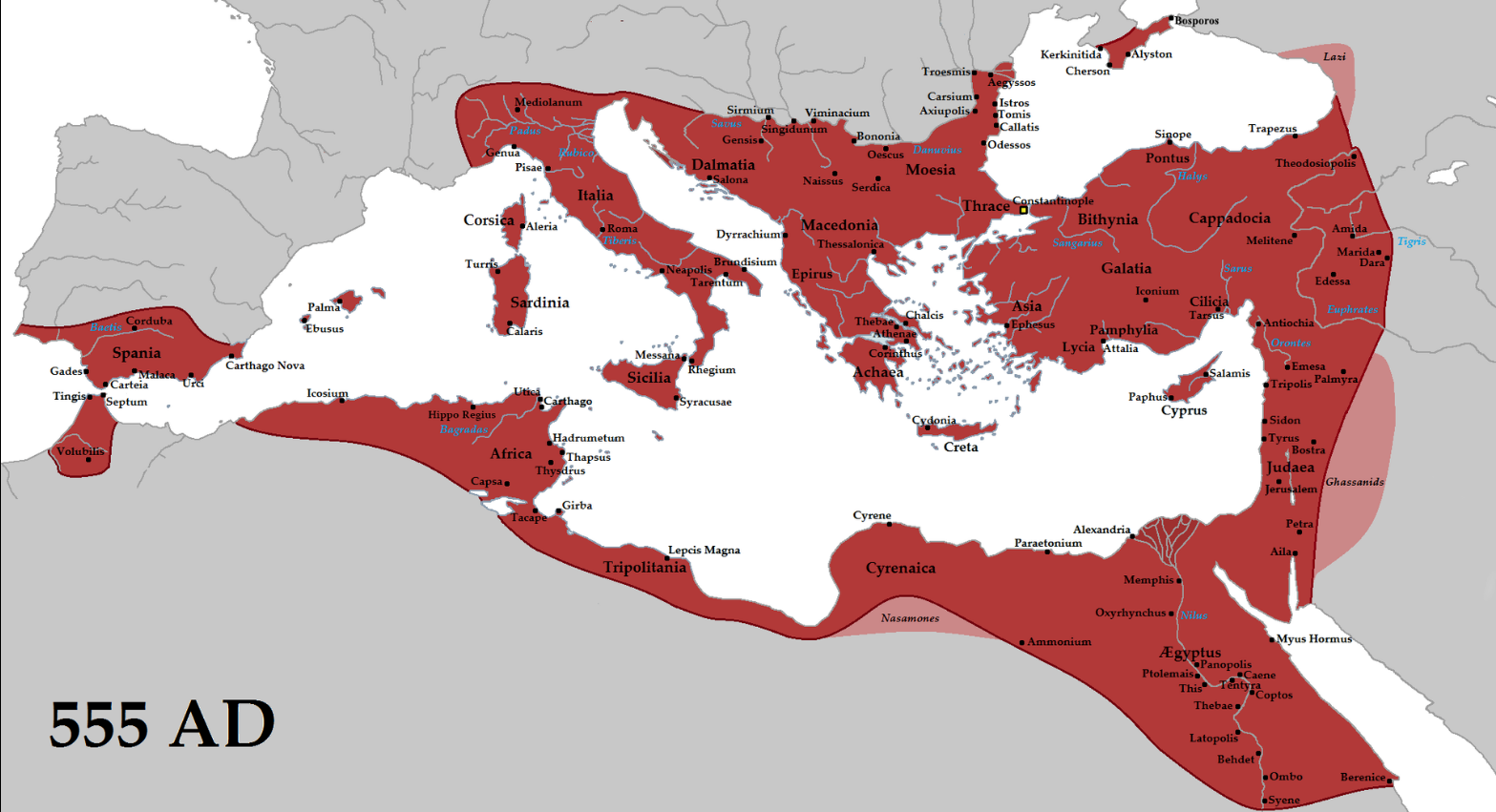
After the fall of the Western Roman Empire in the late 5th century, the "Byzantine Empire" under the emperor Justinian (reigned 527-565), became the world's predominant Christian state, based on Roman law, Greek culture, and the Greek language."[3][4][5] In this Christian state, in which nearly all of its subjects upheld faith in Jesus, an "enormous amount of artistic talent was poured into the construction of churches, church ceremonies, and church decoration".[4] John Binns describes this era, writing that:[6]
As a Christian state, Armenia "embraced Christianity as the religion of the King, the nobles, and the people".[7] In AD 326, according to official tradition of the Georgian Orthodox Church, following the conversion of Mirian and Nana, the country of Georgia became a Christian state, the Emperor Constantine the Great sending clerics for baptising people. In the 4th century AD, in the Kingdom of Aksum, after Ezana's conversion to the faith, this empire also became a Christian state.[8][9]
In the Middle Ages, efforts were made in order to establish a Pan-Christianity state by uniting the countries within Christendom.[10][11] Christian nationalism played a role in this era in which Christians felt the impulse to also recover those territories in which Christianity historically flourished, such as the Holy Land and North Africa.[12]
2. Modern Era
2.1. Argentina
The Constitution guarantees freedom of religion.[13] Although it enforces neither an official nor a state faith,({{{1}}}, {{{2}}}) it gives Roman Catholicism a preferential status.[14][15][16]
The Federal Government supports the Roman Catholic Apostolic religion.
2.2. Costa Rica
The constitution of Costa Rica states that "The Roman Catholic and Apostolic Religion is the religion of the State".[17] As such, Catholic Christian holy days are recognized by the government and "public schools provide religious education", although parents are able to opt-out their children if they choose to do so.[18]
2.3. Denmark
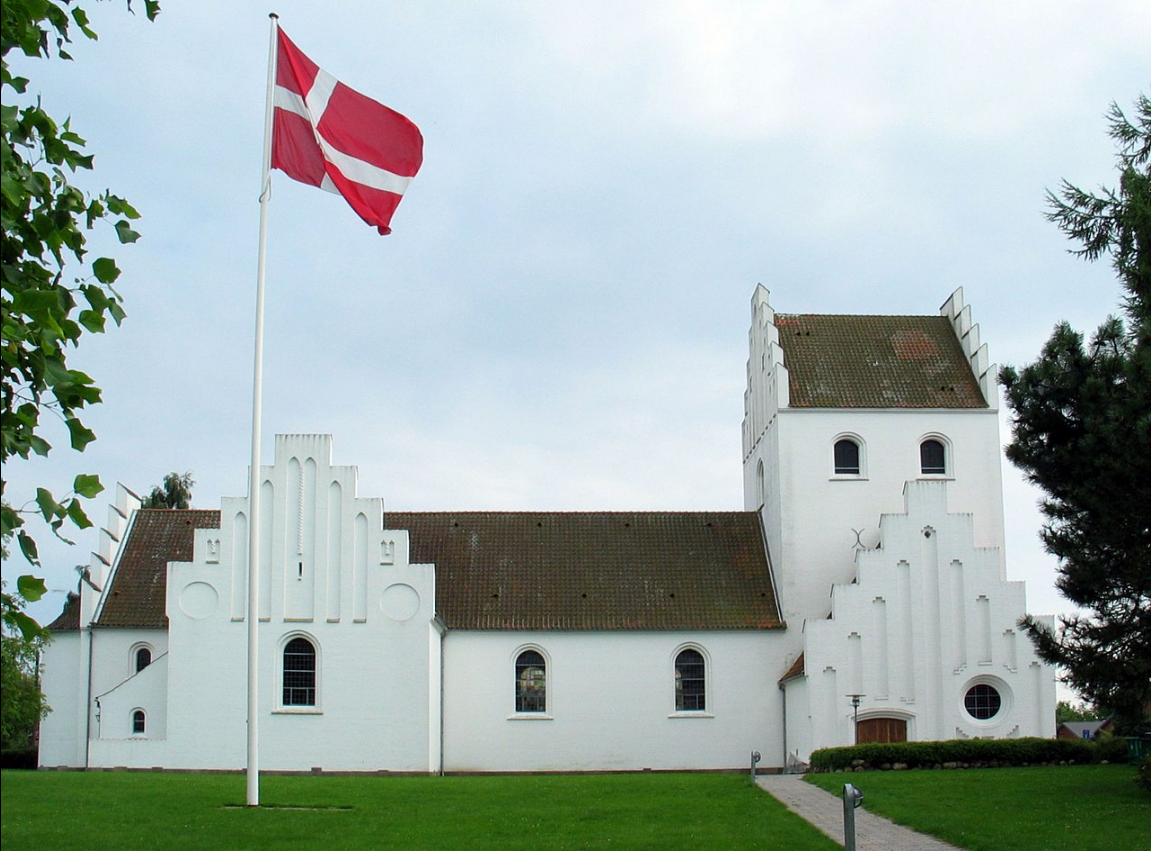
As early as the 11th century AD, "Denmark was considered to be a Christian state",[19][20] with the Church of Denmark, a member of the Lutheran World Federation, being the state church.[21] Prof. Wasif Shadid, of Leiden University, writes that:
82.1% of the population of Denmark are members of the Lutheran Church of Denmark, which is "officially headed by the queen of Denmark".[22] Furthermore, clergy "in the Church of Denmark are civil servants employed by the Ministry of Ecclesiastical Affairs" and the "economic base of the Church of Denmark is state-collected church taxes combined with a direct state subsidiary (12%), which symbolically covers the expenses of the Church of Denmark to run the civil registration and the burial system for all citizens."[22]
2.4. England
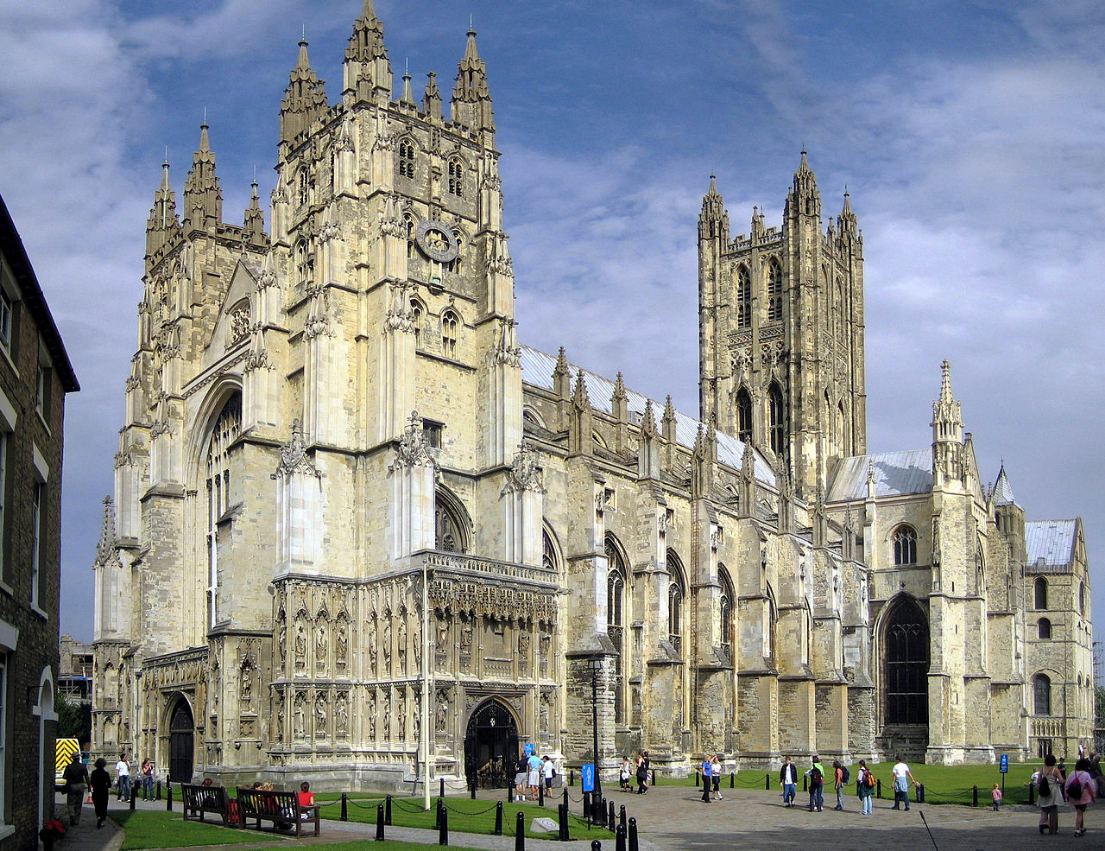
Barbara Yorke writes that the "Carolingian Renaissance heightened appreciation within England of the role of king and church in a Christian state."[23] As such,
Christian religious education is taught to children in primary and secondary schools in the United Kingdom.[24] English schools have a legal requirement for a daily act of collective worship "of a broadly Christian character"[25] that is widely flouted.[26]
2.5. Faroe Islands
The Church of the Faroe Islands is the state church of Faroe Islands.[27]
2.6. Georgia
Georgia is one of the oldest Christian states. Article 8 of Georgian Constitution and Concordat of 2002 grants Georgian Orthodox Church special privileges, which includes legal immunity to Patriarch of Georgia. Orthodox Church is the most trusted institution in the country.[28][29] and its head, Patriarch Ilia II-most trusted person.[30][31]
2.7. Greece
Greece is a Christian state,[32][33] with the Greek Orthodox Church playing "a dominant role in the life of the country".[34]
2.8. Greenland
Being an autonomous constituent country within the Kingdom of Denmark, the Church of Denmark is the established church of Greenland through the Constitution of Denmark:
The Evangelical Lutheran Church shall be the Established Church of Denmark, and, as such, it shall be supported by the State.
This applies to all of the Kingdom of Denmark, except for the Faroe Islands, as the Church of the Faroe Islands became independent in 2007.
2.9. Hungary
The preamble to the Hungarian Constitution of 2011 describes Hungary as "part of Christian Europe" and acknowledges "the role of Christianity in preserving nationhood", while Article VII provides that "the State shall cooperate with the Churches for community goals". However, the constitution also guarantees freedom of religion and separation of church and state.[35]
2.10. Iceland
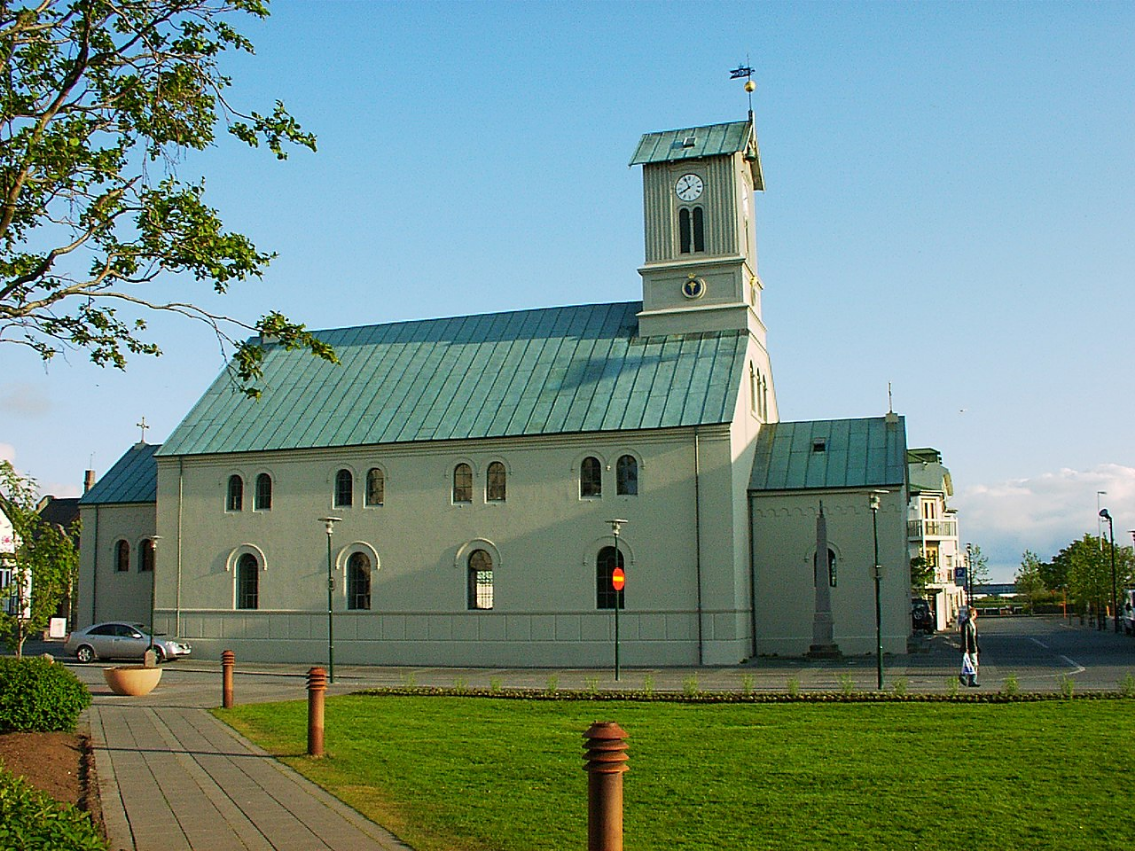
Around AD 1000, Iceland became a Christian state.[36] The Encyclopedia of Protestantism states that:
All public schools have mandatory education in Christianity, although an exemption may be considered by the Minister of Education.[37]
2.11. Liechtenstein
Liechtenstein's constitution designates the Catholic Church as being the state Church of that country.[38] In public schools, per article 16 of the Constitution of Liechtenstein, religious education is given by Church authorities.[38]
2.12. Malta
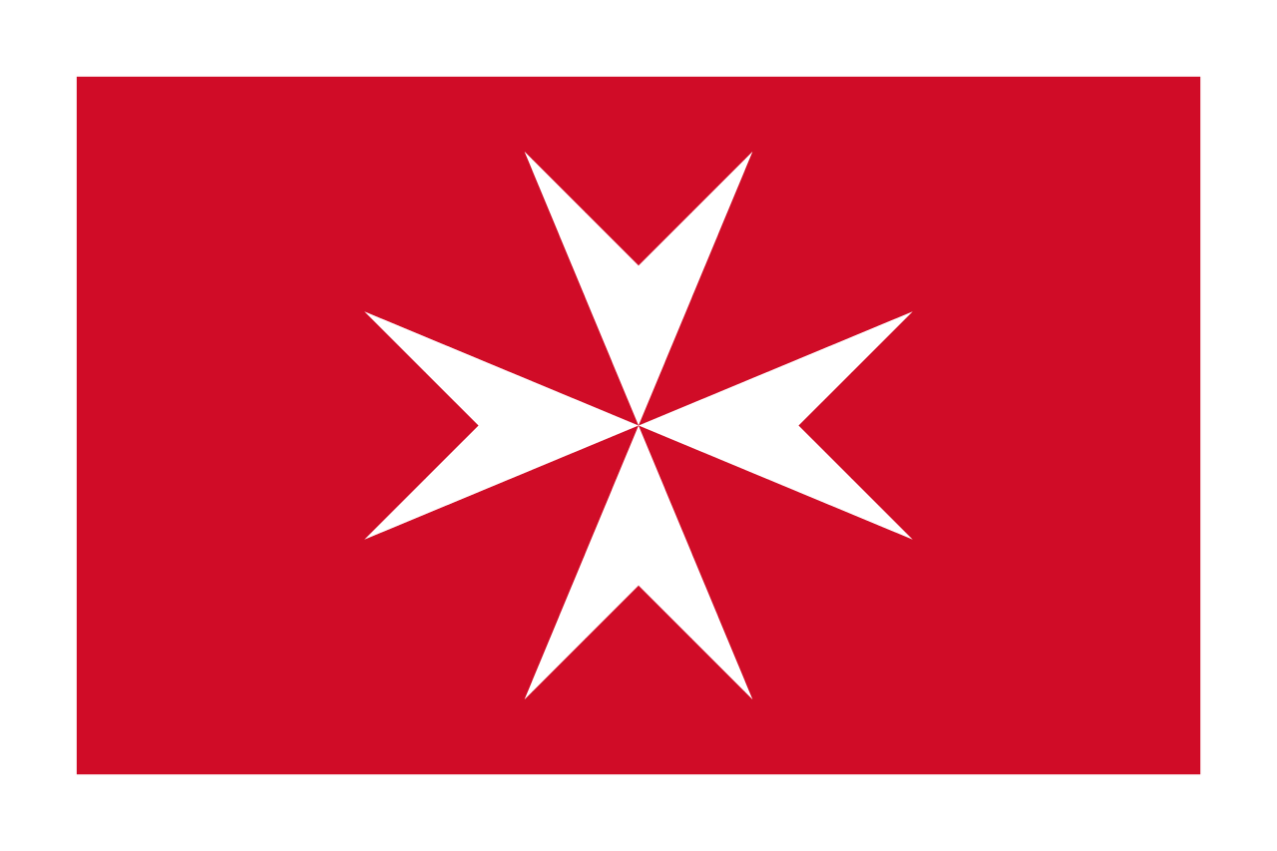
Section Two of the Constitution of Malta specifies the state's religion as being the Roman Catholic Apostolic Religion.[39][40] It holds that the "authorities of the Roman Catholic Apostolic Church have the duty to teach which principles are right and which are wrong" and that "religious teaching of the Roman Catholic Apostolic Faith shall be provided in all State schools as part of compulsory education".[39]
2.13. Monaco
Article 9 of the Constitution of Monaco describes "La religion catholique, apostolique et romaine [the catholic, apostolic and Roman religion]" as the religion of the state.[41]
2.14. Norway
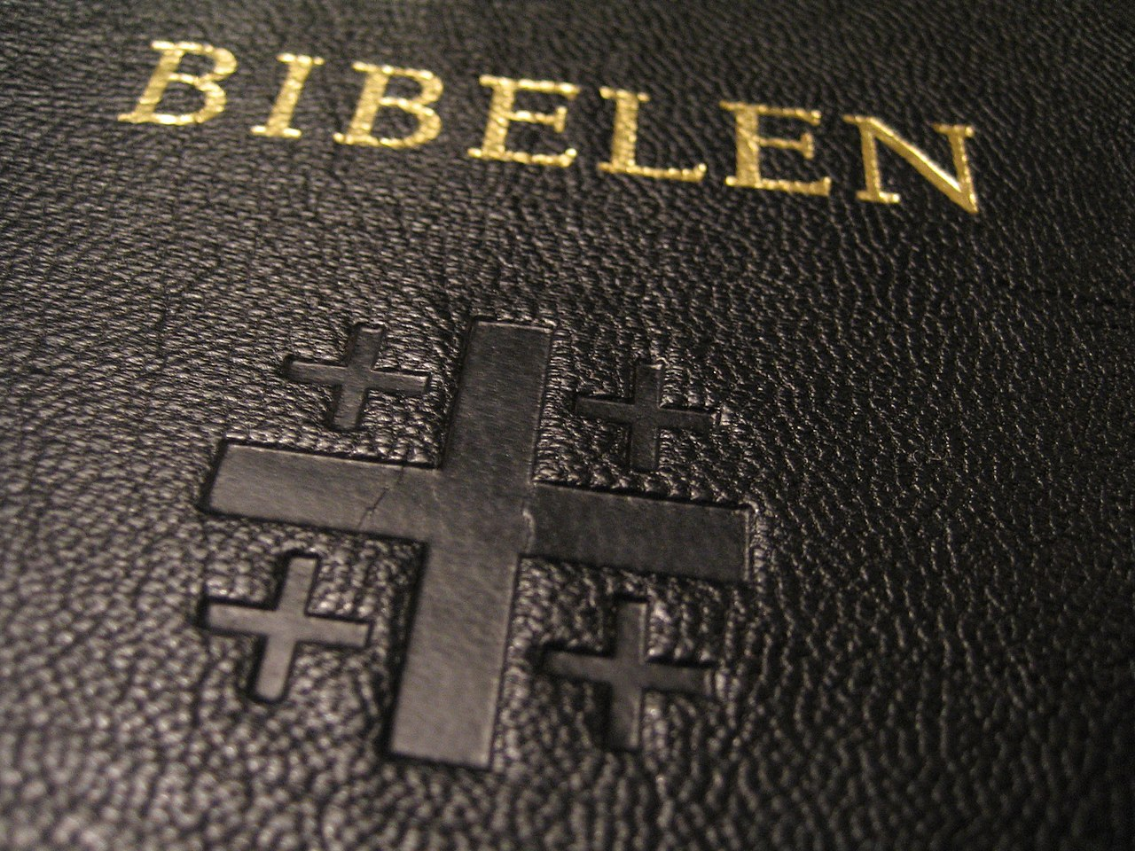
Cole Durham and Tore Sam Lindholm, writing in 2013, stated that "For a period of one thousand years Norway has been a kingdom with a Christian state church" and that a decree went out in 1739 ordering that "Elementary schooling for all Norwegian children became mandatory, so that all Norwegians should be able to read the Bible and the Lutheran Catechism firsthand."[42] The modern Constitution of Norway stipulates that "The Church of Norway, an Evangelical-Lutheran church, will remain the Established Church of Norway and will as such be supported by the State."[43] As such, the "Norwegian constitution decrees that Lutheranism is the official religion of the State and that the King is the supreme temporal head of the Church."[44][45] The administration of the Church "is shared between the Ministry for Church, Education and Research centrally and municipal authorities locally",[44] and the Church of Norway "depends on state and local taxes".[46] The Church of Norway is responsible for the "maintenance of church buildings and cemeteries".[47] John T. Flint writes that "Over 90 percent of the population are married by state church clergymen, have their children baptized and confirmed, and finally are buried with a church service."[48]
2.15. Samoa
Samoa became a Christian state in 2017. Article 1 of the Samoan Constitution states that “Samoa is a Christian nation founded of God the Father, the Son and the Holy Spirit”.[49]
2.16. Tonga
Tonga became a Christian state under George Tupou I in the 19th century,[50][51] with the Free Wesleyan Church, a member of the World Methodist Council, being established as the country's state Church.[52] Under the rule of George I, there was established a "rigorous constitutional clause regulating observation of the Sabbath".[50]
2.17. Tuvalu
The Church of Tuvalu, a Reformed Church in the Congregationalist tradition, is the state church of Tuvalu and was established as such in 1991.[53] The Constitution of Tuvalu identifies Tuvalu as "an independent State based on Christian principles".[54]
2.18. Vatican City
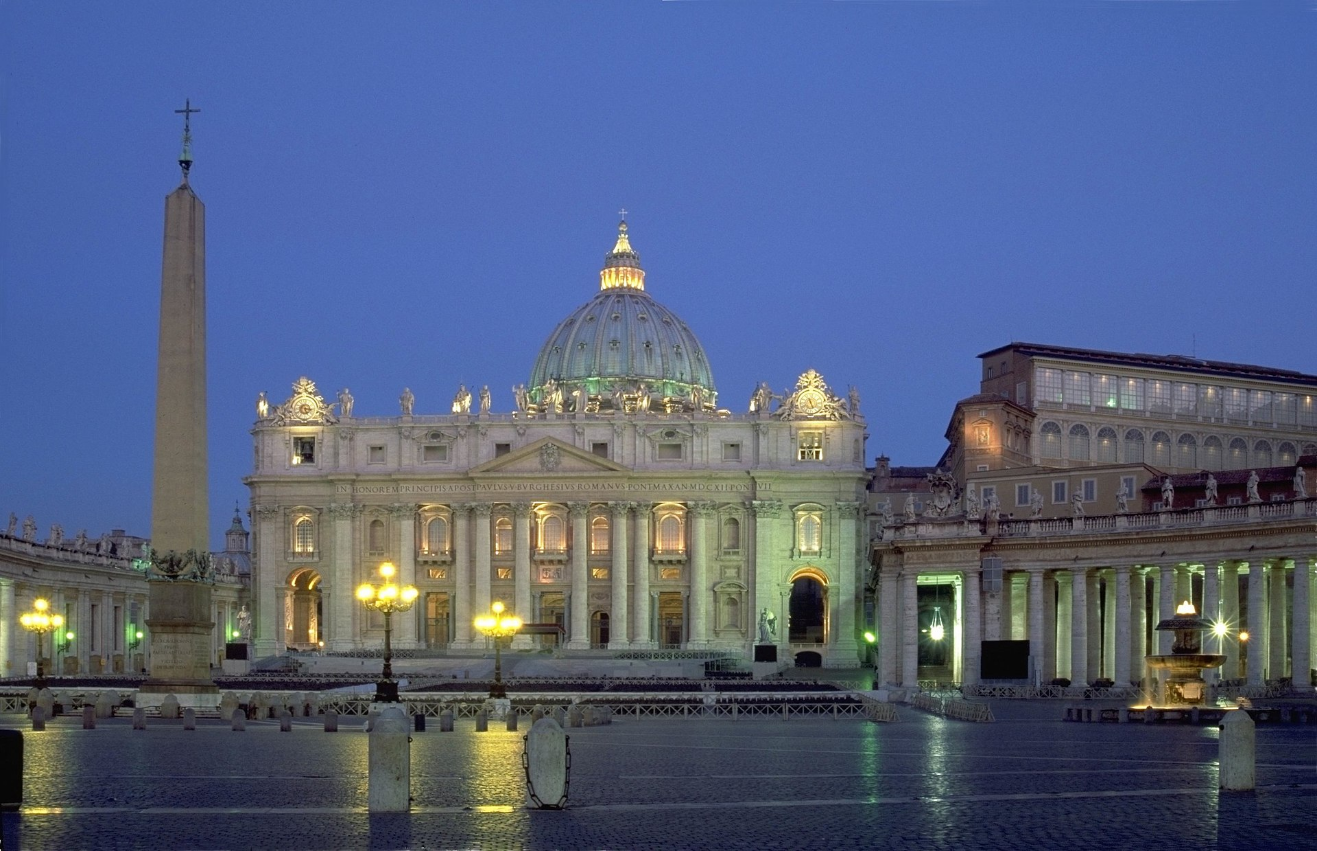
Vatican City is a Christian state, in which the "Pope is ex officio simultaneously leader of the Roman Catholic Church as well as Head of State and Head of the Government of the State of the Vatican City; he also possesses (de jure) absolute authority over the legislative, executive and judicial branches."[55]
2.19. Zambia
Jeroen Temperman, a professor of international law at Erasmus University Rotterdam writes that:
After "Zambia declared itself a Christian nation in 1991", "the nation's vice president urged citizens to 'have a Christian orientation in all fields, at all levels'."[56]
3. Established Churches and Former State Churches
| Location | Church | Denomination | Disestablished |
|---|---|---|---|
| Anhalt | Evangelical State Church of Anhalt | united Protestant | 1918, during the German Revolution |
| Armenia | Armenian Apostolic Church | Oriental Orthodox | 1921 |
| Austria | Catholic Church | Catholic | 1918, under the Federal Constitutional Law |
| Baden | Catholic Church and the United Evangelical Protestant State Church of Baden | Catholic and united Protestant | 1918, during the German Revolution |
| Bavaria | Catholic Church | Catholic | 1918, during the German Revolution |
| Bolivia | Catholic Church | Catholic | 2009, under the Constitution of Bolivia |
| Brazil [57] | Roman Catholic Church | Catholic | 1890 |
| Brunswick | Evangelical Lutheran State Church in Brunswick | Lutheran | 1918, during the German Revolution |
| Bulgaria | Bulgarian Orthodox Church | Eastern Orthodox | 1946 |
| Chile | Catholic Church | Catholic | 1925 |
| Colombia | Catholic Church | Catholic | 1936[58] |
| Connecticut Colony | Congregational Church | Reformed | 1818, under the Constitution of Connecticut |
| Cuba | Catholic Church | Catholic | 1902 |
| Cyprus | Cypriot Orthodox Church | Eastern Orthodox | 1977 with the death of the Ethnarch Makarios III |
| Czechoslovakia | Catholic Church | Catholic | 1920, under the Czechoslovak Constitution |
| Denmark | Church of Denmark | Lutheran | Current |
| East Florida | Church of England | Anglican | 1783 |
| England | Church of England | Anglican | Current |
| Ethiopia | Ethiopian Orthodox Church | Oriental Orthodox | 1974, after the formation of the Derg |
| Faroe Islands | Church of the Faroe Islands | Lutheran | Current; elevated from a diocese of the Church of Denmark in 2007 (the two remain in close cooperation) |
| Finland | Evangelical Lutheran Church of Finland | Lutheran | 1869; however the organisation of the Evangelical Lutheran Church of Finland is regulated by the Constitution of Finland[59] and Church Act of 1993.[60] The state also carries out taxing for the funding of the church on its members.[60] |
| Finnish Orthodox Church | Eastern Orthodox | 1917 | |
| France [61] | Catholic Church | Catholic | 1905, under the law on the Separation of the Churches and the State |
| Georgia | Georgian Orthodox Church | Eastern Orthodox | 1921 |
| Greece | Greek Orthodox Church | Eastern Orthodox[62] | The Church of Greece is recognized by the Greek Constitution as the "prevailing religion" in Greece.[62] However, this provision does not give official status to the Church of Greece, while all other religions are recognized as equal and may be practiced freely.[63] |
| Greenland | Church of Denmark | Lutheran | Current; under discussion to be elevated from The Diocese of Greenland in the Church of Denmark to a state church for Greenland, along‐the‐lines the Faroese Church took in 2007 |
| Guatemala | Catholic Church | Catholic | 1871 |
| Haiti | Catholic Church | Catholic | 1987 |
| Hawaii | Church of Hawaii | Anglican | 1893, after the overthrow of the Hawaiian Kingdom |
| Hesse | Evangelical Church in Hesse | united Protestant | 1918, during the German Revolution |
| Hungary[64] | Roman Catholic Church | Catholic | 1946 |
| Iceland | Lutheran Evangelical Church | Lutheran | Current |
| Kingdom of Ireland[65] | Church of Ireland | Anglican | 1871 |
| Republic of Ireland[66] | Catholic Church | Catholic | |
| Italy | Catholic Church | Catholic | 1949 |
| Liechtenstein | Catholic Church[67] | Catholic | Current |
| Lippe | Church of Lippe | Reformed | 1918 |
| Lithuania | Catholic Church | Catholic | 1940 |
| Lübeck | Evangelical Lutheran Church in the State of Lübeck | Lutheran | 1918 |
| Luxembourg | Catholic Church | Catholic | Current |
| Republic of Macedonia | Macedonian Orthodox Church | Eastern Orthodox | 1921 |
| Malta | Catholic Church | Catholic | Current |
| Mecklenburg-Schwerin | Evangelical Lutheran State Church of Mecklenburg-Schwerin | Lutheran | 1918 |
| Mecklenburg-Strelitz | Mecklenburg-Strelitz State Church | Lutheran | 1918 |
| Mexico | Catholic Church | Catholic | 1857, under the Federal Constitution (reestablished between 1864 and 1867) |
| Monaco | Catholic Church | Catholic | Current |
| Netherlands | Dutch Reformed Church | Reformed | 1795 |
| New Brunswick | Church of England | Anglican | |
| Norway | Church of Norway | Lutheran | 2017[68][69] |
| Nova Scotia | Church of England | Anglican | 1850 |
| Oldenburg | Evangelical Lutheran Church of Oldenburg | Lutheran | 1918 |
| Panama | Catholic Church | Catholic | 1904 |
| Paraguay | Catholic Church | Catholic | 1992[70] |
| Philippines [71] | Catholic Church | Catholic | 1898 |
| Poland [72] | Catholic Church | Catholic | 1947 |
| Portugal | Catholic Church | Catholic | 1910, 1976 (reestablished between 1933 and 1974) |
| Prince Edward Island | Church of England | Anglican | |
| Province of Georgia, British America | Church of England | Anglican | 1789 |
| Province of Maryland | Church of England | Anglican | 1776 |
| Province of Massachusetts Bay | Congregational Church | Reformed | 1834 |
| Province of New Hampshire | Church of England | Anglican | 1877 |
| Province of North Carolina | Church of England | Anglican | 1776 |
| Province of South Carolina | Church of England | Anglican | 1790 |
| Prussia pre 1866 provinces |
Evangelical State Church of Prussia's older Provinces with nine ecclesiastical provinces | united Protestant | 1918 |
| Prussia Province of Hanover |
Evangelical Reformed State Church of the Province of Hanover | Reformed | 1918 |
| Prussia Province of Hanover |
Evangelical Lutheran State Church of Hanover | Lutheran | 1918 |
| Prussia Province of Hesse-Nassau (partially) |
Evangelical State Church of Frankfurt upon Main | united Protestant | 1918 |
| Prussia Province of Hesse-Nassau (partially) |
Evangelical Church of Electoral Hesse | united Protestant | 1918 |
| Prussia Province of Hesse-Nassau (partially) |
Evangelical State Church in Nassau | united Protestant | 1918 |
| Prussia Prov. of Schleswig-Holstein |
Evangelical Lutheran Church of Schleswig-Holstein | Lutheran | 1918 |
| Quebec | Catholic Church | Catholic | 1960, after the Quiet Revolution |
| Romania | Romanian Orthodox Church | Eastern Orthodox | 1947 |
| Russia | Russian Orthodox Church | Eastern Orthodox | 1917, after the Russian Revolution |
| Thuringia | church bodies in principalities which merged in Thuringia in 1920 | Lutheran | 1918 |
| Saxony | Evangelical Lutheran State Church of Saxony | Lutheran | 1918 |
| Schaumburg-Lippe | Evangelical State Church of Schaumburg-Lippe | Lutheran | 1918 |
| Scotland[73] | Church of Scotland | Presbyterian | State control disclaimed since 1638. Formally recognised as not an established church in 1921 |
| Serbia | Serbian Orthodox Church | Eastern Orthodox | 1920 |
| Spain | Catholic Church | Catholic | 1978 |
| Sweden | Church of Sweden | Lutheran | 2000 |
| Switzerland | separate Cantonal Churches («Landeskirchen») | Zwinglianism & Calvinism or Catholic | during the 20th century |
| Tuvalu | Church of Tuvalu | Reformed | Current |
| United Province of Canada | Church of England | Anglican | 1854 |
| Uruguay | Catholic Church | Catholic | 1918 (into effect in 1919) |
| Virginia | Church of England | Anglican | 1786 |
| Waldeck | Evangelical State Church of Waldeck and Pyrmont | united Protestant | 1918 |
| Wales[74] | Church of England | Anglican | 1920 |
| West Florida | Church of England | Anglican | 1783 |
| Württemberg | Evangelical State Church in Württemberg | Lutheran | 1918 |
4. National Church
A number of countries have a national church which is not Established (as the official religion of the nation), but is nonetheless recognised under civil law as being the country's acknowledged religious denomination. Whilst these are not Christian states, the official Christian national church is likely to have certain residual state functions in relation to state occasions and ceremonial. Examples include Scotland (Church of Scotland) and Sweden (Church of Sweden). A national church typically has a monopoly on official state recognition, although unusually Finland has two national churches (the Evangelical Lutheran Church of Finland and the Finnish Orthodox Church), both recognised under civil law as joint official churches of the nation.
The content is sourced from: https://handwiki.org/wiki/Social:Christian_state
References
- Ashby, Warren (4 July 2010). A Comprehensive History Of Western Ethics. Prometheus Books. p. 152. ISBN 9781615926947. "In the Edict of Thessalonica (380) he expressed the imperial "desire" that all Roman citizens should become Christians, the emperor adjudging all other madmen and ordering them to be designated as heretics,...condemned as such...to suffer divine punishment, and, therewith, the vengeance of that power, which we, by celestial authority, have assumed. There was thus created the "Christian State.""
- Ismael, Jacqueline S.; Ismael, Tareq Y.; Perry, Glenn (5 October 2015). Government and Politics of the Contemporary Middle East. Taylor & Francis. pp. 48. ISBN 9781317662822. "Theodosius did so through the 380 CE 'Edict of Thessalonica,' which established Nicene Christianity as the state church of the Roman Empire, with the Bishop of Rome as Pope."
- Frucht, Richard C. (2004). Eastern Europe. ABC-CLIO. p. 627. ISBN 9781576078006. "In contrast, the emperor Justinian (527-565) refashioned the eastern part of the Roman Empire into a strong and dynamic Byzantine Empire, which claimed Bosnia-Hercegovina, among other provinces. The Byzantine Empire became the world's predominant Christian state, based on Roman law, Greek culture, and the Greek language."
- Spielvogel, Jackson (1 January 2013). Western Civilization. Cengage Learning. p. 155. ISBN 9781285500195. "The Byzantine Empire was both a Greek and a Christian state. Increasingly, Latin fell into disuse as Greek became both the common and the official language of the empire. The Byzantine Empire was also built on a faith in Jesus that was shared by almost all of its citizens. An enormous amount of artistic talent was poured into the construction of churches, church ceremonies, and church decoration. Spiritual principles deeply permeated Byzantine art."
- Truxillo, Charles A. (1 January 2008). Periods of World History: A Latin American Perspective. Jain Publishing Company. p. 103. ISBN 9780895818638. "The Byzantine Empire, stripped of Syria, Egypt, and North Africa, became a compact Orthodox Christian state, upholding its claim to Roman universalism and constructing an Orthodox Christian commonwealth among the Slavs of the Balkans and Russia."
- Binns, John (4 July 2002). An Introduction to the Christian Orthodox Churches. Cambridge University Press. p. 145. ISBN 9780521667388.
- Milman, Henry Hart; Murdock, James (1887). The History of Christianity. A. C. Armstrong & Son. p. 258. "But while Persia fiercely repelled Christianity from its frontier, upon that frontier arose a Christian state. Armenia was the first country which embraced Christianity as the religion of the King, the nobles, and the people."
- Ching, Francis D. K.; Jarzombek, Mark M.; Prakash, Vikramaditya (13 December 2010). A Global History of Architecture. John Wiley & Sons. p. 213. ISBN 9780470402573. "In the 4th century, King Ezana converted to Christianity and declared Aksum a Christian state—the first Christian state in the history of the world."
- Stanton, Andrea L.; Ramsamy, Edward (5 January 2012). Cultural Sociology of the Middle East, Asia, and Africa: An Encyclopedia. SAGE Publications. p. 1. ISBN 9781412981767. "Then, in the early 4th century, Ezana, Aksum's ruler, converted to Christianity and proclaimed Aksum a Christian state."
- Snyder, Louis L. (1990) (in English). Encyclopedia of Nationalism. St. James Press. p. 282. ISBN 978-1-55862-101-5. "Major religions in the past, especially Christianity, have attempted to include all their adherents in a large union, but they have not been successful. Throughout most of the Middle Ages in Western Europe, attempts were made again and again to unite all the Christian world into a kind of Pan-Christianity, which would combine all Christians in a secular-religious state as a successor to the Roman Empire."
- Snyder, Louis Leo (1984) (in English). Macro-nationalisms: A History of the Pan-movements. Greenwood Press. p. 129. ISBN 978-0-313-23191-9. "Throughout the better part of the Middle Ages, elaborate attempts were made to create what was, in effect, a Pan-Christianity, an effort to unite "all" the Western Christian world into a successor state of the Roman Empire."
- (in English) Parole de l'Orient, Volume 30. Université Saint-Esprit. 2005. p. 488.
- Constitution of Argentina, arts. 14, 20.
- Constitution of Argentina, art. 2.
- In practice this privileged status amounts to tax-exempt school subsidies and licensing preferences for radio broadcasting frequencies.
- "International Religious Freedom Report 2012 – Argentina". US Department of State. 2012. https://2009-2017.state.gov/j/drl/rls/irf/religiousfreedom/index.htm.
- Yakobson, Alexander; Rubinstein, Amnon (2009). Israel and the Family of Nations: The Jewish Nation-state and Human Rights. Taylor & Francis. p. 215. ISBN 9780415464413. "Thus the Constitution of Costa Rica, which is considered a model of stable democracy in Latin America, states in Article 75: The Roman Catholic and Apostolic Religion is the religion of the State, which contributes to its maintenance, without preventing the free exercise in the Republic of other forms of worship that are not opposed to universal morality or good customs."
- Merriman, Scott A. (14 July 2009). Religion and the State: An International Analysis of Roles and Relationships. ABC-CLIO. p. 148. ISBN 9781598841343. "The government as a whole treats religion well and allows missionaries to freely enter and move around the country. Only the Catholic holy days are recognized as holidays, but the state generally allows people time to celebrate their holy days if they are of another religion. The public schools provide religious education, but parents can opt their children out if they choose."
- Warburg, Margit; Christoffersen, Lisbet; Petersen, Hanne; Hans Raun Iversen (28 June 2013). Religion in the 21st Century. Ashgate Publishing, Ltd.. p. 85. ISBN 9781409480860.
- Künker Auktion 121 - The De Wit Collection of Medieval Coins. Numismatischer Verlag Künker. p. 206. "Sweyn brought about Denmark's transition from a tribal civilisation to an early Christian state and furthermore modernised the organisation of the Christian church."
- The Lutheran Standard, Volume 27. Augsburg Publishing House. 1987. "The state church of Denmark is Lutheran and a member of the Lutheran World Federation."
- Juergensmeyer, Mark; Roof, Wade Clark (18 October 2011). Encyclopedia of Global Religion. SAGE Publications. p. 292. ISBN 9781452266565. "A majority of Danes, 82.1% (as of January 2008), are members of the Evangelical Lutheran Church of Denmark—by Section 4 of the constitution, the state church, officially headed by the queen of Denmark. Pastors in the Church of Denmark are civil servants employed by the Ministry of Ecclesiastical Affairs, which also constitutes the head of administration. The economic base of the Church of Denmark is state-collected church taxes combined with a direct state subsidiary (12%), which symbolically covers the expenses of the Church of Denmark to run the civil registration and the burial system for all citizens."
- Yorke, Dr Barbara (1 November 2002). Kings and Kingdoms of Early Anglo-Saxon England. Routledge. p. 176. ISBN 9781134707256. "The Carolingian Renaissance heightened appreciation within England of the role of king and church in a Christian state."
- Eberle, Professor Edward J (28 February 2013). Church and State in Western Society: Established Church, Cooperation and Separation. Ashgate Publishing, Ltd.. p. 6. ISBN 9781409497806. "In the UK, the state church is the Church of England, a Protestant church. Under the established church approach, the government will assist the state church and likewise the church will assist the government. Religious education is mandated by law to be taught in all schools, public or private."
- López-Muñiz, José Luis Martínez; Groof, Jan De; Lauwers, Gracienne (17 January 2006). Religious Education in Public Schools: Study of Comparative Law. Springer Science & Business Media. p. 163. ISBN 9781402038631. "The requirement that the collective worship be of a broadly Christian character is satisfied '...if it reflects the broad traditions of Christian belief without being distinctive of any particular Christian denomination.' Furthermore, it is expressly provided that not every act of collective worship be of a broadly Christian character: the requirement is satisfied provided that, taking any school term as a whole, the majority of acts of collective worship are broadly Christian in character."
- "State schools 'ignoring assembly' despite legal requirement". The Telegraph. 6 September 2011. https://www.telegraph.co.uk/news/religion/8743791/State-schools-ignoring-assembly-despite-legal-requirement.html. Retrieved 1 May 2020.
- Faroe Islands in figures 2015 Statistics Faroe Island http://www.hagstova.fo/sites/default/files/Faroe_Islands_in_figures_2015.pdf
- https://caucasusbarometer.org/en/cb2013ge/TRUGOCH/
- https://jam-news.net/georgian-church-more-trusted-than-parliament-president-and-pm-together/
- Patriarch Ilia II: Most trusted man in Georgia CNN http://edition.cnn.com/2010/WORLD/europe/04/23/georgia.powerful.patriarch.ilia/
- Politicians' Ratings in NDI-Commissioned Poll Civil.ge http://civil.ge/eng/article.php?id=26806
- Jiang, Qing (2012). A Confucian Constitutional Order. Princeton University Press. p. 221. ISBN 9780691154602. "The features of the state affect the essence of the state, but the key term is that of historical identity, hence this chapter concentrates on historical identity as the essence of the state, though at times some of the other features will also be referred to. For instance, ancient Greece has now become an Orthodox Christian state. Ancient Persia (Iran) has now become a Muslim state, and the ancient Buddhist states of the Silk Route have also become Islamic states."
- Enyedi, Zsolt; Madeley, John T.S. (2 August 2004). Church and State in Contemporary Europe. Routledge. p. 119. ISBN 9781135761417. "Greece is the only Orthodox country in the EU."
- Meyendorff, John (1981). The Orthodox Church: Its Past and Its Role in the World Today. St Vladimir's Seminary Press. p. 155. ISBN 9780913836811. "Greece therefore is today the only country where the Orthodox Church remains a state church and plays a dominant role in the life of the country."
- Hungary's Constitution of 2011. Retrieved 9 February 2016. https://www.constituteproject.org/constitution/Hungary_2011.pdf
- Kendrick, T. D. (15 March 2012). A History of the Vikings. Courier Corporation. p. 350. ISBN 9780486123424. "In becoming a Christian state, then, Iceland had avoided the chaos that was threatened by the secession of the Christian party from Althing and had cemented her friendship with the mother-country of Norway."
- Jonathan Fox (2008). A World Survey of Religion and the State (Cambridge Studies in Social Theory, Religion and Politics). Cambridge University Press. ISBN 978-0-521-70758-9. "All public schools have mandatory education in Christianity. Formally, only the Minister of Education has the power to exempt students from this but individual schools usually grant informal exemptions." https://www.wikipedia.org/wiki/Cambridge%20University%20Press
- Fox, Jonathan (19 May 2008). A World Survey of Religion and the State. Cambridge University Press. p. 119. ISBN 9781139472593. "Liechtenstein's constitution designates the Catholic Church as the state Church and guarantees religious freedom. Article 38 provides protection for the property rights of all religious institutions and states that "the administration of church property in the parishes shall be regulated by a specific law; the agreement of church authorities shall be sought before the law is enacted." Article 16 states that religious instruction in public schools "shall be given by church authorities.""
- Gozdecka, Dorota Anna (27 August 2015). Rights, Religious Pluralism and the Recognition of Difference: Off the Scales of Justice. Routledge. p. 59. ISBN 9781317629801. "According to Section 2 of the Maltese Constitution from the year 1964, amended in 1994 and 1996, the state church of Malta is the Roman Catholic Church. According to the same section it is endowed with a legal right to determine moral rights and wrongs and is privileged in public education: 1. The religion of Malta is the Roman Catholic Apostolic Religion. 2. The authorities of the Roman Catholic Apostolic Church have the duty to teach which principles are right and which are wrong. Religious teaching of the Roman Catholic Apostolic Faith shall be provided in all State schools as part of compulsory education."
- "Chapter 1 – The Republic of Malta". Legal-Malta. Archived from the original on 27 August 2011. https://web.archive.org/web/20110827044831/http://www.legal-malta.com/law/constitution-1.htm. Retrieved 4 September 2011.
- (French): Art. 9., Principaute De Monaco: Ministère d'Etat (archived from the original on 27 September 2011). http://www.gouv.mc/devwww/wwwnew.nsf/1909$/036c62fe5f92f2efc1256f5b0054fa42gb?OpenDocument&3Gb
- Durham, W. Cole; Lindholm, Tore Sam; Tahzib-Lie, Bahia (11 December 2013). Facilitating Freedom of Religion or Belief. Springer. pp. 778–. ISBN 9789401756167.
- The Constitution of Norway, Article 16 (English translation, published by the Norwegian Parliament) https://www.stortinget.no/globalassets/pdf/constitutionenglish.pdf
- Eriksen, Tore Linné; Afrikainstitutet, Nordiska (2000). Norway and National Liberation in Southern Africa. Nordic Africa Institute. p. 271. ISBN 9789171064479.
- Singh, Vikram (1 January 2008). Norway: The Champion of World Peace. Northern Book Centre. p. 81. ISBN 9788172112455.
- Fahlbusch, Erwin (2003). The Encyclopedia of Christianity. Wm. B. Eerdmans Publishing. p. 796. ISBN 9780802824158.
- Country Profile: Norway. The Unit. 1994. p. 9. https://books.google.com/books?id=kq1BAQAAIAAJ.
- Flint, John T. (1957). State, church and laity in Norwegian society: a typological study of institutional change. University of Wisconsin–Madison. p. 10.
- Wyeth, Grant (June 16, 2017). "Samoa Officially Becomes a Christian State". The Diplomat. http://thediplomat.com/2017/06/samoa-officially-becomes-a-christian-state/. Retrieved June 16, 2017.
- Fodor's (12 February 1986). Fodor's South Pacific. Fodor's. ISBN 9780679013075. "As King George I of Tonga, Tupou created the "modern" Christian state with the Cross dominating its flag, and with the rigorous constitutional clause regulating observation of the Sabbath."
- Oliver, Douglas L. (1 January 1989). The Pacific Islands. University of Hawaii Press. p. 118. ISBN 9780824812331. "Tonga, according to its mission friends, exemplified how grace and selfless devotion to the task could transform a feuding array of heathen communities into a unified Christian state."
- Bell, Daphne (26 April 2005). New to New Zealand: a guide to ethnic groups in New Zealand. Reed Books. ISBN 9780790009988. "Nearly all Tongans are Christian, and about 30 percent belong to the Free Wesleyan Church, the official state church."
- Ferrari, Silvio (3 May 2015). Routledge Handbook of Law and Religion. Routledge. p. 217. ISBN 9781135045555. "Recent trends have moved in opposite directions: while the parliament of Tuvalu in 1991 approved legislation establishing the (Congregationalist) Church of Tuvalu as the State Church, at the end of 2007 Nepal's provisional parliamentary assembly voted to abolish the monarchy whose kings were popularly held to be reincarnations of the Hindu god Vishnu."
- Temperman, Jeroen (2010). State-Religion Relationships and Human Rights Law. Brill Academic Publishers. p. 18. ISBN 9789004181489. "The Constitution of Tuvalu in a similar vein constitutes Tuvalu as "an independent State based on Christian principles...and Tuvaluan custom and tradition"; and also the Constitution of Vanuatu proclaims in its Preamble: "[we] HEREBY proclaim the establishment of the united and free Republic of Vanuatu founded on traditional Melanesian values, faith in God, and Christian principles...""
- Temperman, Jeroen (2010). State-Religion Relationships and Human Rights Law. Brill Academic Publishers. p. 18. ISBN 9789004181489. "The Roman Catholic State of Vatican City is, of course, the best contemporary example of a Christian state. The State of Vatican City, originally established by the Lateran Pacts of 1929, approximates most faithfully the ideal-typical conception of theocratic Roman Catholic state. The Pope is ex officio simultaneously leader of the Roman Catholic Church as well as Head of State and Head of the Government of the State of the Vatican City; he also possesses (de jure) absolute authority over the legislative, executive and judicial branches. Practically all acts and policies of the Vatican City revolve around the interests of the Holy See and, apart from the members of the Pontifical Swiss Guard, virtually all inhabitants of the Vatican City are members of the clergy."
- Jenkins, Philip (11 August 2011). The Next Christendom: The Coming of Global Christianity. Oxford University Press. p. 187. ISBN 9780199911530.
- Brazilian Laws - the Federal Constitution - The Organization of State. V-brazil.com. Retrieved 5 May 2012. Brazil had Roman Catholicism as the state religion from the country's independence, in 1822, until the fall of the Brazilian Empire. The new Republican government passed, in 1890, Decree 119-A "Decreto 119-A". http://www.planalto.gov.br/ccivil_03/decreto/1851-1899/d119-a.htm. "Prohibits federal and state authorities to intervene on religion, granting freedom of religion." (still in force), instituting the separation of church and state for the first time in Brazilian law. Positivist thinker Demétrio Nunes Ribeiro urged the new government to adopt this stance. The 1891 Constitution, the first under the Republican system of government, abolished privileges for any specific religion, reaffirming the separation of church and state. This has been the case ever since – the 1988 Constitution of Brazil, currently in force, does so in its Nineteenth Article. The Preamble to the Constitution does refer to "God's protection" over the document's promulgation, but this is not legally taken as endorsement of belief in any deity.
- John Gunter, Inside Latin America (1941), p. 166
- "The Constitution of Finland" (in English). Ministry of Justice (Finland). http://www.finlex.fi/en/laki/kaannokset/1999/en19990731.pdf. Retrieved 11 January 2020.
- "Kirkkolaki 1054/1993" (in Finnish). Ministry of Justice (Finland). https://www.finlex.fi/fi/laki/ajantasa/1993/19931054. Retrieved 11 January 2020.
- In France the Concordat of 1801 made the Catholic, Calvinist and Lutheran churches state-sponsored religions, as well as Judaism.
- [1] THE CONSTITUTION OF GREECE: SECTION II RELATIONS OF CHURCH AND STATE: Article 3, Hellenic Resources network. http://www.hri.org/
- [2] THE CONSTITUTION OF GREECE: PART TWO INDIVIDUAL AND SOCIAL RIGHTS: Article 13
- In Hungary the constitutional laws of 1848 declared five established churches on equal status: the Catholic, Calvinist, Lutheran, Eastern Orthodox and Unitarian Church. In 1868 the law was ratified again after the Ausgleich. In 1895 Judaism was also recognized as the sixth established church. In 1948 every distinction between the different denominations were abolished.[80][81]
- In the Kingdom of Ireland the Church of Ireland was established in the Reformation.[82] The Act of Union 1800 created the United Kingdom of Great Britain and Ireland with the United Church of England and Ireland established outside Scotland. The Irish Church Act 1869 demerged and disestablished the Church of Ireland,[82] and the island was partitioned in 1922.
- The Republic of Ireland's 1937 constitution prohibits an established religion.[83] Originally, it recognized the "special position" of the Catholic Church "as the guardian of the Faith professed by the great majority of the citizens", and recognized "the Church of Ireland, the Presbyterian Church in Ireland, the Methodist Church in Ireland, the Religious Society of Friends in Ireland, as well as the Jewish Congregations and the other religious denominations existing in Ireland at the date of the coming into operation of this Constitution".[84] These provisions were deleted in 1973.[85]
- (archived from the original on 2009-03-26). http://www.liechtenstein.li/en/pdf-fl-staat-verfassung-sept2003.pdf
- "Norway's church and state to divorce after almost 500 years". http://christiandaily.com/article/norways-church-and-state-to-divorce-after-almost-500-years/59710.htm.
- "2017 - et kirkehistorisk merkeår". 2017-12-30. https://kirken.no/nb-NO/om-kirken/aktuelt/2017---et-kirkehistorisk-merkear/.
- Under the 1967 Constitution, Catholicism was the state religion as stated in Article 6: "The Catholic Apostolic religion is the state religion, without prejudice to religious freedom, which is guaranteed in accordance with the provisions of this Constitution. Official relations of the republic with the Holy See shall be governed by concordats or other bilateral agreements." The 1992 Constitution, which replaced the 1967 one, establishes Paraguay as a secular state, as mentioned in section (1) of Article 24: "Freedom of religion, worship, and ideology is recognized without any restrictions other than those established in this Constitution and the law. The State has no official religion."
- The Philippines was among several possessions ceded by Spain to the United States in 1898; religious freedom was subsequently guaranteed in the archipelago. This was codified in the Philippine Organic Act (1902), section 5: "... That no law shall be made respecting an establishment of religion or prohibiting the free exercise thereof, and that the free exercise and enjoyment of religious profession and worship, without discrimination or preference, shall forever be allowed." A similarly-worded provision still exists in the present Constitution. Catholicism remains the predominant religion, wielding considerable political and cultural influence. https://www.wikipedia.org/wiki/Spain
- Article 25 of the constitution states: "1. Churches and other religious organizations shall have equal rights. 2. Public authorities in the Republic of Poland shall be impartial in matters of personal conviction". Article 114 of the Polish March Constitution of 1921 declared the Catholic Church to hold "the principal position among religious denominations equal before the law" (in reference to the idea of first among equals). The article was continued in force by article 81 of the April Constitution of 1935. The Soviet-backed PKWN Manifesto of 1944 reintroduced the March Constitution, which remained in force until it was replaced by the Small Constitution of 1947. http://www.sejm.gov.pl/prawo/konst/angielski/kon1.htm
- The modern Church of Scotland has always disclaimed recognition as an "established" church. The Church of Scotland Act 1921 formally recognised the Kirk's independence from the state.
- The Church in Wales was split from the Church of England in 1920, by Welsh Church Act 1914; at the same time becoming disestablished.
